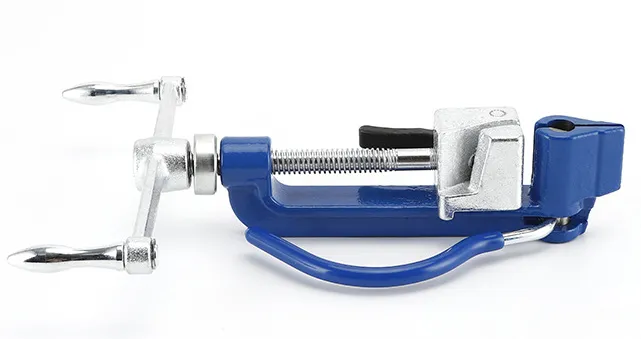
-
 Afrikaans
Afrikaans -
 Albanian
Albanian -
 Amharic
Amharic -
 Arabic
Arabic -
 Armenian
Armenian -
 Azerbaijani
Azerbaijani -
 Basque
Basque -
 Belarusian
Belarusian -
 Bengali
Bengali -
 Bosnian
Bosnian -
 Bulgarian
Bulgarian -
 Catalan
Catalan -
 Cebuano
Cebuano -
 Corsican
Corsican -
 Croatian
Croatian -
 Czech
Czech -
 Danish
Danish -
 Dutch
Dutch -
 English
English -
 Esperanto
Esperanto -
 Estonian
Estonian -
 Finnish
Finnish -
 French
French -
 Frisian
Frisian -
 Galician
Galician -
 Georgian
Georgian -
 German
German -
 Greek
Greek -
 Gujarati
Gujarati -
 Haitian Creole
Haitian Creole -
 hausa
hausa -
 hawaiian
hawaiian -
 Hebrew
Hebrew -
 Hindi
Hindi -
 Miao
Miao -
 Hungarian
Hungarian -
 Icelandic
Icelandic -
 igbo
igbo -
 Indonesian
Indonesian -
 irish
irish -
 Italian
Italian -
 Japanese
Japanese -
 Javanese
Javanese -
 Kannada
Kannada -
 kazakh
kazakh -
 Khmer
Khmer -
 Rwandese
Rwandese -
 Korean
Korean -
 Kurdish
Kurdish -
 Kyrgyz
Kyrgyz -
 Lao
Lao -
 Latin
Latin -
 Latvian
Latvian -
 Lithuanian
Lithuanian -
 Luxembourgish
Luxembourgish -
 Macedonian
Macedonian -
 Malgashi
Malgashi -
 Malay
Malay -
 Malayalam
Malayalam -
 Maltese
Maltese -
 Maori
Maori -
 Marathi
Marathi -
 Mongolian
Mongolian -
 Myanmar
Myanmar -
 Nepali
Nepali -
 Norwegian
Norwegian -
 Norwegian
Norwegian -
 Occitan
Occitan -
 Pashto
Pashto -
 Persian
Persian -
 Polish
Polish -
 Portuguese
Portuguese -
 Punjabi
Punjabi -
 Romanian
Romanian -
 Russian
Russian -
 Samoan
Samoan -
 Scottish Gaelic
Scottish Gaelic -
 Serbian
Serbian -
 Sesotho
Sesotho -
 Shona
Shona -
 Sindhi
Sindhi -
 Sinhala
Sinhala -
 Slovak
Slovak -
 Slovenian
Slovenian -
 Somali
Somali -
 Spanish
Spanish -
 Sundanese
Sundanese -
 Swahili
Swahili -
 Swedish
Swedish -
 Tagalog
Tagalog -
 Tajik
Tajik -
 Tamil
Tamil -
 Tatar
Tatar -
 Telugu
Telugu -
 Thai
Thai -
 Turkish
Turkish -
 Turkmen
Turkmen -
 Ukrainian
Ukrainian -
 Urdu
Urdu -
 Uighur
Uighur -
 Uzbek
Uzbek -
 Vietnamese
Vietnamese -
 Welsh
Welsh -
 Bantu
Bantu -
 Yiddish
Yiddish -
 Yoruba
Yoruba -
 Zulu
Zulu


Aug . 14, 2024 10:16 Back to list
Exploring the Benefits and Applications of Fiberglass Bar in Modern Construction and Industry
The Versatile Applications and Benefits of Fiberglass Bars
Fiberglass bars, also known as fiberglass reinforced plastic (FRP) bars, have become increasingly popular in various industries due to their remarkable strength, durability, and lightweight properties. Composed of strands of glass fibers encapsulated in a resin matrix, these bars offer a unique combination of characteristics that make them suitable for a wide range of applications, from construction to aerospace.
Strength and Durability
One of the most significant advantages of fiberglass bars is their exceptional tensile strength. Compared to traditional materials like steel or aluminum, fiberglass bars exhibit similar or superior strength-to-weight ratios. This makes them ideal for applications where reducing weight while maintaining structural integrity is crucial. Moreover, fiberglass is inherently resistant to corrosion, which extends the lifespan of the bars in harsh environments where metal alternatives might fail due to rust or chemical exposure. As a result, fiberglass bars are commonly used in marine applications, chemical plants, and waste treatment facilities, where resistance to corrosive elements is paramount.
Lightweight Nature
The lightweight nature of fiberglass bars also translates into ease of handling and installation. This property allows for reduced labor costs and lower shipping expenses, making them economically advantageous for large-scale projects. The ease of transportation and installation means that fiberglass bars can be utilized in remote locations and challenging terrains where traditional materials might pose logistical challenges. Additionally, the lightweight nature does not compromise the strength, making fiberglass a go-to choice for various engineering and architectural projects.
Versatile Applications
fiberglass bar

Fiberglass bars are versatile and find their use across multiple sectors. In construction, they are often employed as reinforcement for concrete structures, such as bridges, buildings, and other infrastructures. Their non-corrosive properties ensure longevity in these applications, making them a cost-effective choice in the long run. In the electrical industry, fiberglass bars are utilized as insulators due to their excellent dielectric properties. They are pivotal in creating electrical components that require both insulation and structural support.
The aerospace industry has also begun to recognize the benefits of fiberglass. The lightweight yet durable materials contribute to overall weight reduction in aircraft, leading to fuel efficiency and enhanced performance. In addition, fiberglass bars can be molded into complex shapes, providing engineers with the flexibility needed for innovative design solutions.
Environmental Considerations
As sustainability becomes an increasingly pressing concern, fiberglass bars present an environmentally friendly option. Their long-lasting nature reduces the need for frequent repairs and replacements, minimizing waste. Furthermore, manufacturers are exploring methods to recycle fiberglass materials, creating a more sustainable lifecycle for these products. This aligns well with the growing focus on green building practices in the construction industry.
Conclusion
In conclusion, fiberglass bars are an excellent example of modern engineering solutions that bridge the gap between traditional materials and innovative technology. Their high strength-to-weight ratio, corrosion resistance, and versatility make them suitable for a myriad of applications across various industries. As advancements continue in the production and recycling of fiberglass materials, we can expect to see an even broader adoption in sectors that prioritize durability and sustainability. Whether it’s in building infrastructure, developing advanced aerospace components, or creating sustainable energy solutions, fiberglass bars are poised to play a crucial role in the future of materials science.
Latest news
Understanding Earth Wiring and Grounding: Essential Components for Electrical Safety
NewsAug.15,2025
The Ultimate Guide to Cable Pulling Tools and Equipment for Efficient Installations
NewsAug.15,2025
Streamline Your Projects with Advanced Cable Pulling Equipment
NewsAug.15,2025
Simplify Cable Installation with Advanced Cable Pulling Tools and Equipment
NewsAug.15,2025
Essential Guide to Link Sticks and Hot Sticks for Electrical Safety and Line Work
NewsAug.15,2025
Efficient Solutions for Cable Installation: Your Guide to Cable Pulling Winches and Equipment
NewsAug.15,2025








